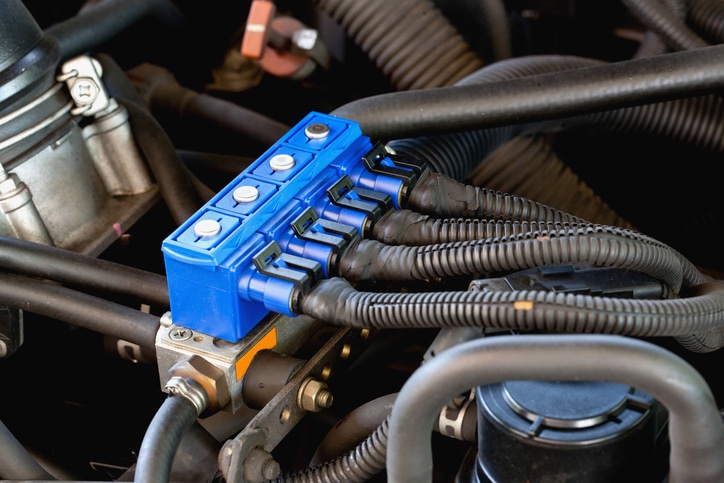When it comes to modern automobile engines, the fuel injection system is a crucial component that ensures the engine runs smoothly and efficiently. In this article, we will explore how a fuel injection system works and the main purpose of the fuel injector.
What is a Fuel Injection System?
A fuel injection system is a complex network of components that work together to supply fuel to an engine. This system replaces the carburetor that was used in older vehicles. The main purpose of a fuel injection system is to regulate the fuel supply to the engine and to ensure that the air-fuel mixture is optimal for combustion.

Components of a Fuel Injection System
There are several components in a fuel injection system, including:
Fuel Tank
The fuel tank is where the fuel is stored. It is usually located at the rear of the vehicle, and its capacity varies depending on the size of the vehicle.
Fuel Pump
The fuel pump is responsible for delivering fuel from the fuel tank to the engine. It is usually located inside the fuel tank, and it is powered by electricity.
Fuel Filter
The fuel filter is a component that filters out any impurities in the fuel before it reaches the engine. This prevents any damage to the engine from contaminated fuel.
Fuel Injector
The fuel injector is the component that sprays fuel into the engine. Fuel injectors are located in the intake manifold or the cylinder head, and it is controlled by the engine’s electronic control unit (ECU).
Electronic Control Unit (ECU)
The ECU is the brain of the fuel injection system. It receives information from various sensors and adjusts the fuel supply accordingly.
How a Fuel Injection System Works
The fuel injection system works in the following way:
- The fuel pump pumps fuel from the fuel tank to the fuel rail.
- The fuel filter removes any impurities from the fuel.
- The fuel injector sprays fuel into the engine at the right time, based on the information received from the ECU.
- The ECU constantly monitors the engine’s sensors and adjusts the fuel supply accordingly.
The Main Purpose of Fuel Injectors
The main purpose of the fuel injectors is to deliver the right amount of fuel to the engine at the right time. This ensures that the air-fuel mixture is optimal for combustion. If the air-fuel mixture is too lean, the engine will run poorly and may suffer from misfires or stall. If the air-fuel mixture is too rich, the engine will produce excessive emissions and may suffer from poor fuel economy.
Conclusion
In conclusion, a fuel injection system is a complex network of components that work together to ensure the engine runs smoothly and efficiently. The fuel injector is a crucial component of the fuel injection system, and its main purpose is to deliver the right amount of fuel to the engine at the right time.
FAQs
- What are the benefits of a fuel injection system over a carburetor? A fuel injection system provides better fuel economy, improved throttle response, and more precise fuel delivery than a carburetor.
- Can a clogged fuel injector cause engine problems? Yes, a clogged fuel injector can cause a variety of engine problems, including misfires, poor fuel economy, and stalling.
- How often should I clean my fuel injectors? Fuel injectors should be cleaned every 30,000 to 50,000 miles, or as recommended by the manufacturer.
- Can a fuel injection system be repaired? Yes, a fuel injection system can be repaired if there is a problem with one of its components. However, it is often more cost-effective to replace the entire system.






